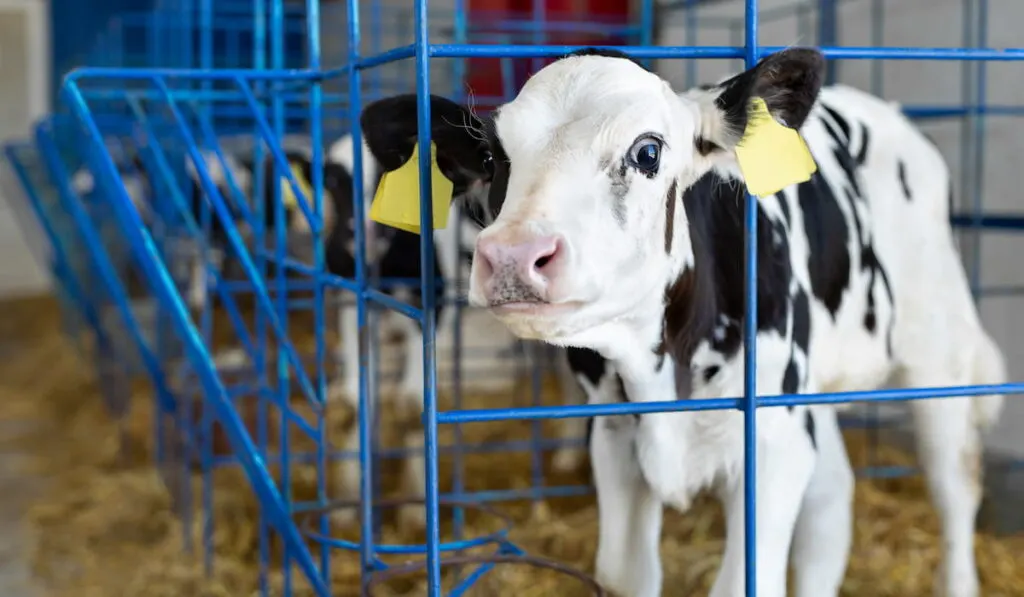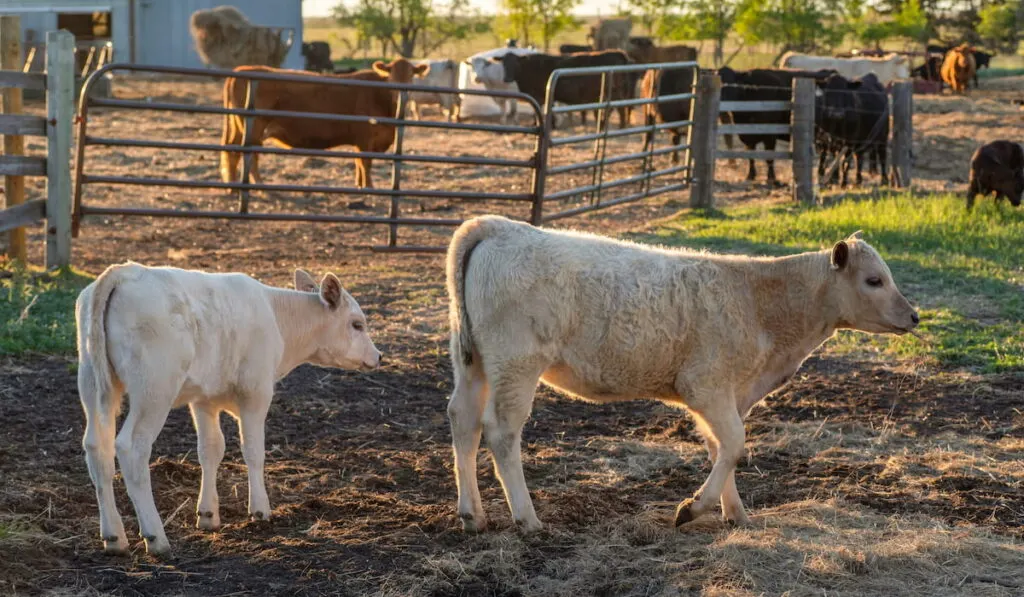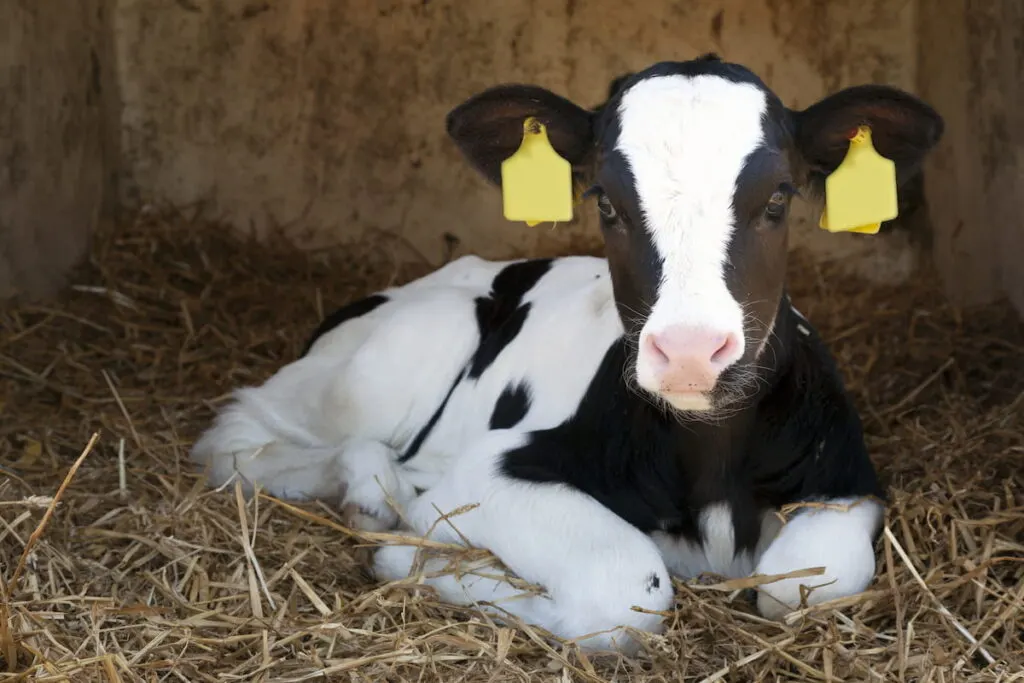Are you thinking about getting a cow? Baby cows are adorable. Bottle feeding them and petting them is a ton of fun.
If you’re thinking about raising a baby cow, you should know how much it costs.
On average, a yearling will cost you between $400-$1500.
Whether your cow is a dairy cow or will be raised for meat will affect the price as well as things like the breed, weight, and family pedigree.
Yearlings from high-quality cows will cost more than your run-of-the-mill farm cow.
And that’s just what it costs to buy them. Raising a baby cow will cost you when it comes to feeding them, providing the right medical care, making suitable shelter, and other costs.
Let’s examine what you can expect to pay to buy and raise a baby cow correctly.

Find the Right Baby Cow
For the most part, the biggest determining factor in baby cow price will be weight.
It’s an indication of how much time and investment went into raising the cow to this point, and how well it will be expected to produce meat or milk.
Another part of the price is the fact that buying a younger yearling comes with more risk.
A significantly higher number of very young calves die than yearlings do, for example.
A calf will need to be bottle-fed and kept in warm places, and a lot of effort goes into getting them past the crucial early months of life.
Unfortunately, a lot of them don’t make it. As a result, a calf will be much cheaper to buy than a yearling.
When you buy a yearling, you’re paying for the expertise that went into getting them this far.
When a cow is anywhere from four to six months old, it’s seen as much less likely to die, and thus can fetch a higher price on the market.
You can expect to pay around $400-$700 for a yearling cow. Again, the weight, whether they are a dairy or a beef cow, and other factors will play a part in pricing.

Differences in Breeds
Depending on where you are in the buying process, you might know that different cow breeds are, well, different!
The type of baby cow you buy will also affect the price that you ultimately pay. What you want the cow for will also influence your decision.
Basic Guidelines on Different Cow Breeds
- Highland cows – Highland cows are known for their lean, marbled meat. These are hearty cows with thick coats that can survive and thrive in colder parts of the country.
If you are going to raise a cow somewhere frigid, then these cows are a good choice. - Black Angus – You’ve probably seen beef stamped as “Angus” in your local grocery store.
These are extremely popular beef cows because they’re low maintenance and they have marbled meat that’s delicious for people who love a good steak. - Hereford cows – New cow owners love to buy and raise Hereford cows because they mature quickly and their high-fat content increases their survivability.
They’re easy to own and interact with because they tend to be docile cows that are good for raising as dairy cows. - Jersey cows – These are some of the most popular dairy cows in the country.
They’re smaller cows that produce good quantities of high-grade milk. - Brown Swiss cows – Brown Swiss cows are a very gentle breed that is great for new cow owners.
They’ll put up with a lot and tend to enjoy human interaction. This is also one of the oldest dairy cow breeds around, so they’re dependable and easy to find. - Holstein cows – If you’re not sure what you’re raising a cow for just yet, some breeds are good for either beef or dairy like the Holstein breed.

Annual Upkeep for Raising a Baby Cow
Once you know how much you’re going to pay for your cow, you should spend some time planning how you are going to raise it.
Most people can plan on paying around $1,000 a year for food and upkeep.
If you have enough land to plant and grow feed, of course, it will cost you less money, but you need to have at least a couple of acres of land to grow enough food for a single cow.
If you’re lucky, you can raise a baby cow without any issues.
However, most people, at some point, are going to run into issues like their cow eating something poisonous or getting sick or injured as they move around fields.
The cost of treating a sick or injured cow can easily cost you thousands of dollars.
However, if you plan well, your cow can grow up happily and healthily on your property and live a long, full life.
Raising a cow can be a ton of fun as a project for a family, or as a new revenue stream for your small but growing farm.
